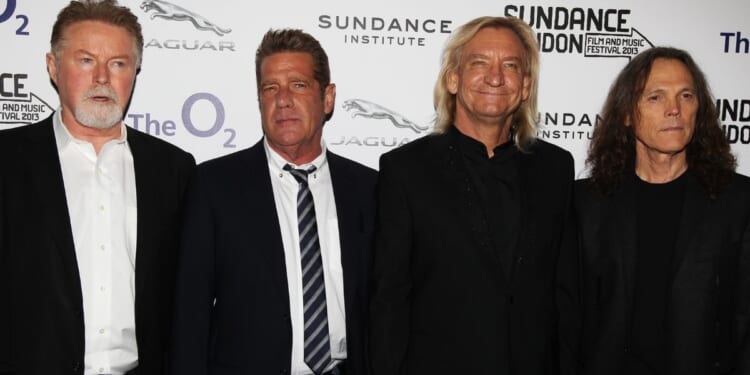The original handwritten drafts of the all-American hit and internationally-renowned song “Hotel California” have ignited an unprecedented legal battle.
Glenn Horowitz, a dealer of rare books, together with Craig Inciardi, a former curator at the Rock & Roll Hall of Fame, and Edward Kosinski, a memorabilia merchant, find themselves at the heart of a criminal trial over the papers, according to a report by The Associated Press.
The three men are accused of conspiring to illegally possess and attempt to sell the manuscript of “Hotel California,” among other Eagles classics.
The trio vehemently denies these accusations, while asserting their innocence against the charges brought upon them.
The defense has reportedly challenged the notion that the documents were stolen, pointing to interactions with Ed Sanders, a writer and musician who had been compiling material for an authorized Eagles biography that never came to fruition.
Sanders, who is not facing charges, allegedly sold the manuscripts to Horowitz, who, in turn, sold them to Inciardi and Kosinski.
As the trial progresses, various narratives about how the manuscripts were obtained have surfaced, ranging from being found in a dressing room to being directly acquired from band members.
Now, over 80 pages of lyrics from the “Hotel California” album, including drafts of the Grammy-winning title track, are at stake, representing invaluable pieces of music history.
“Hotel California” has reportedly been streamed over 220 million times and was played 136,000 times last year in the U.S. alone, the AP reported, citing entertainment data company Luminate.
Do you like The Eagles?
The origins of the current legal dispute trace back to the acquisition of the manuscripts through a writer who had previously collaborated with the Eagles, according to the defense.
However, the Manhattan district attorney’s office contends that the defendants deliberately obscured the true ownership of the documents, fully aware that Don Henley — a founding member, drummer and lead vocalist for the Eagles — had reported them as stolen.
Henley is slated to testify in this case amidst ongoing Eagles tour commitments.
The “Hotel California” trial is unique in that it has a high-profile celebrity witness involved and it deals with the legendary status of disputed documents. It also raises broader questions about the value and ownership of cultural artifacts.
There have been several notable legal battles in the music industry that highlight the contentious nature of music rights and ownership.
While not directly about stolen lyrics, as is the case with the “Hotel California” legal battle, the following examples address copyright infringement, rather than the physical theft of lyrics, and underscore the complex nature of legal disputes in the music industry.
One of the most famous copyright infringement cases involved Led Zeppelin’s iconic song “Stairway to Heaven.”
The band was sued over allegations that the opening chords of the song were copied from the instrumental track “Taurus” by the band Spirit.
The case went to trial in 2016, and Led Zeppelin ultimately prevailed, with the jury finding that the song did not infringe on “Taurus.”
George Harrison was sued for copyright infringement by the copyright owner of the song “He’s So Fine,” performed by The Chiffons.
The lawsuit claimed that Harrison’s hit “My Sweet Lord” bore substantial similarities to “He’s So Fine.” In 1976, the court found that Harrison had subconsciously plagiarized the song. It became a landmark case in copyright law regarding unintentional infringement.
In another historic case, The Verve faced legal issues over their hit song “Bitter Sweet Symphony,” which used a sample from an orchestral recording of The Rolling Stones’ song “The Last Time.”
Although The Verve had initially obtained permission to use the sample, the legal dispute centered around the extent of its use. The matter was settled out of court, with The Rolling Stones’ music publishing company taking royalties for the song and Mick Jagger and Keith Richards being added as co-writers.


